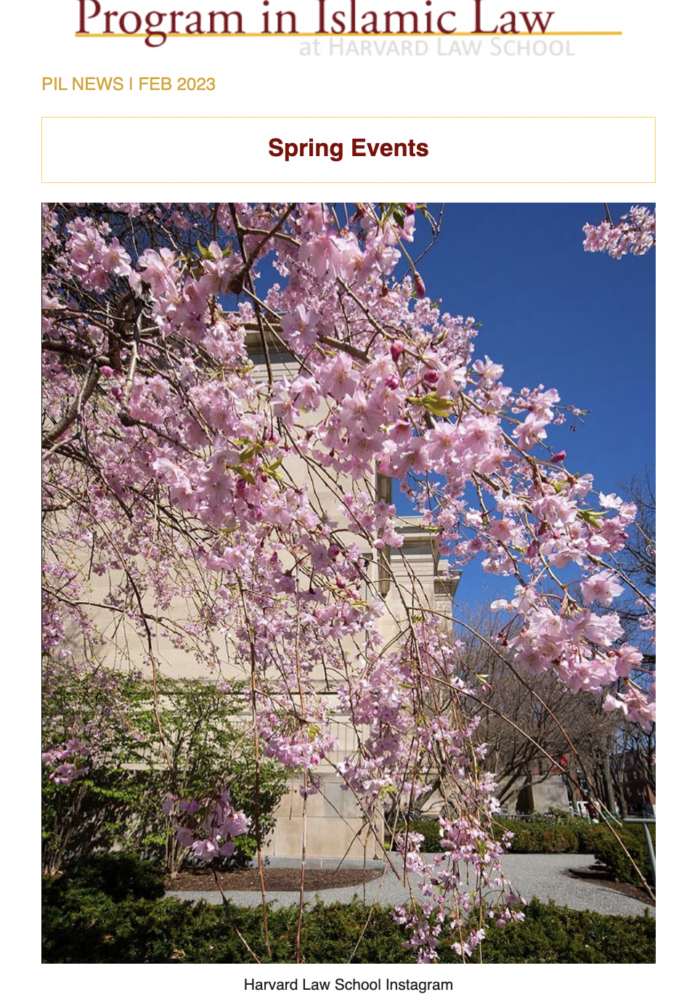
 |
Spring Events As the semester is well underway, we look forward to another term of new research and learning. We are particularly pleased to announce our lineup of Spring events, some of which use the data science tools we are developing at SHARIAsource! In short, there is a lot there, more to come, and plenty of ways to get involved or participate online. All of this has been achieved with the continuing support and engagement of both the local and broader global community members, such as yourself. Thank you, our work is made possible by you.
|
 |
CONTENT: Islamic Criminal Law Across the World One aim of SHARIAsource is to provide access to primary sources of Islamic law to support research on salient issues of Islamic law and history. The portal features a collection of primary sources from countries that apply varied interpretations of Islamic criminal law today, including: Brunei in a special collection titled “Country Profile: Brunei,” which includes the sultanate’s recently adopted an Islamic penal code, the United Arab Emirates in a special collection titled “Country Profile: United Arab Emirates,” as well as primary sources relating to the recent amendments to the country’s criminal code via Federal Decree Law no. 31 of 2021, and Nigeria in the “The Nigeria Papers: Sharīʿa Implementation in Northern Nigeria,” special collection which, among others, brings together sources on Nigerian penal law, including cases on the crime of adultery (zinā). In addition to the above jurisdictions, the portal offers country profiles on many countries that apply a form of Islamic criminal law. Explore the collection today!
|
 |
CONTEXT: Islamic Criminal Law Resource Roundup Discussions of and attention to Islamic criminal law in recent times have revolved almost exclusively around press coverage relating to excessively harsh interpretations of Islamic criminal law or sharīʿa often with little to no religious or historical precedent. To set the record straight: Islamic criminal law refers to and should be understood as an area of law that expresses certain moral norms and values while simultaneously requiring far more procedural protections – through notions of Islamic reasonable doubt – that mitigate application of the harshest punishments on the books. Professor Intisar Rabb recently published a resource roundup on the topic, which features an essay, a list of select resources by lawyers and historians on the history, jurisprudence, and modern operation of Islamic criminal law, primary sources and expert-analysis resources on countries that apply varied interpretations of Islamic criminal law, and news blurbs on the topic that we’ve gathered over the years and update regularly. Read it today! |

